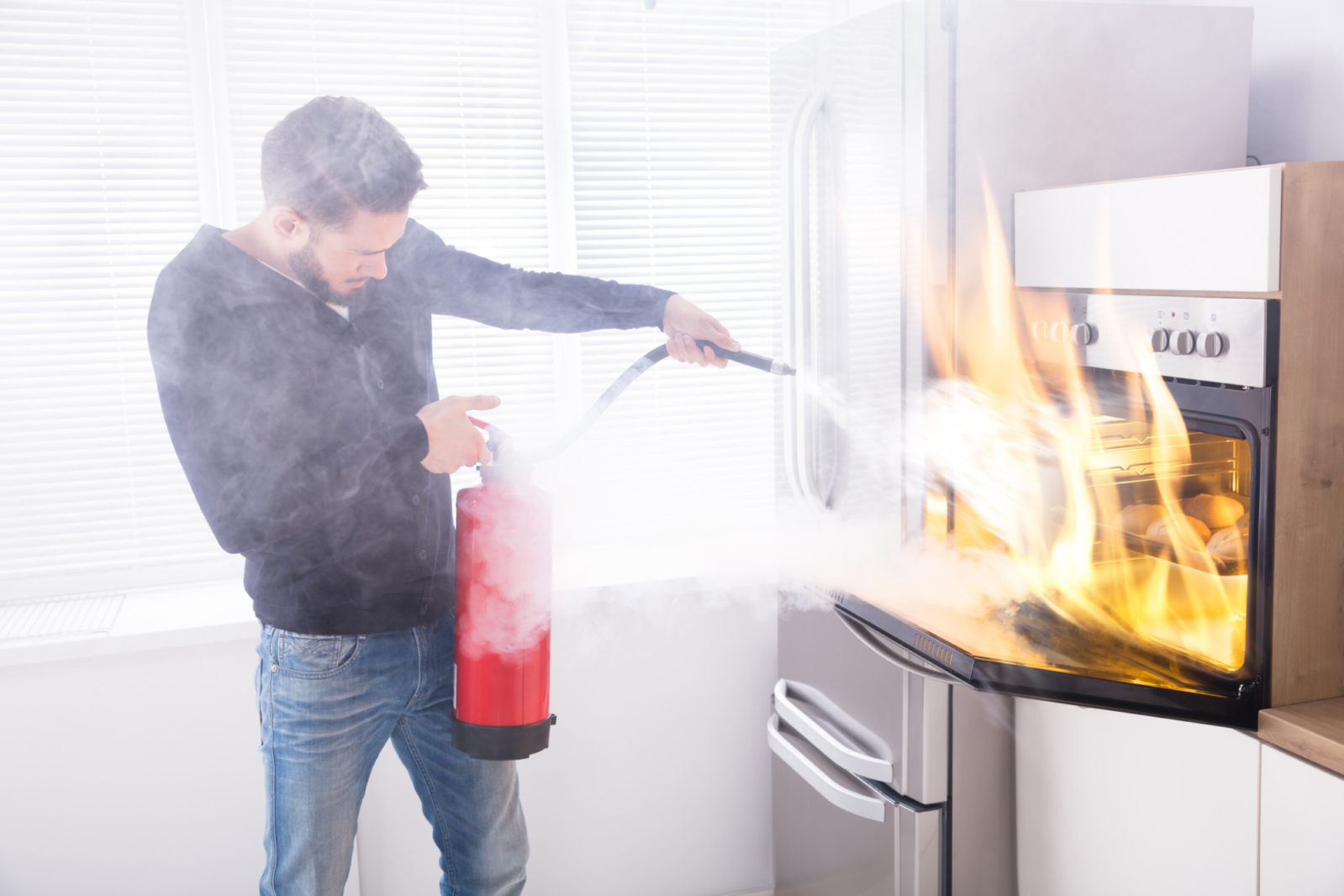Common Causes of House Fires & Essential Emergency Items for Your Home

A house fire can be devastating, not to mention, putting your family and home at risk. Every year, thousands of homes experience fires due to common causes that could have been prevented. In this blog, we will help you to understand these causes and prepare with essential emergency items that you can have on hand. This guide can make all the difference when it comes to prevention, read on!
Common Causes of House Fires
1. Cooking Fires
Cooking-related fires are the leading cause of home fires. Think unattended cooking, grease fires, and flammable materials near the stove that can quickly ignite a fire. This one seems straight forward, but distractions happen, and it’s just not as obvious as you would think. Always stay in the kitchen while cooking, keep flammable objects clear from open flames, and never leave the stove or oven on if you do have to leave the room.
2. Electrical Issues
Watch your plugs. We know it seems easier to just plug everything in as close as possible, but faulty wiring, overloaded circuits, and outdated electrical systems are the second major cause of home fires. Maybe you have a small kitchen and too many appliances in an outlet, or you have damaged cords, or even improper installations, all of which can lead to sparks that ignite a blaze. If you are lacking outlets in your main living spaces, have a professional inspect your home’s wiring and make recommendations on how many outlets you should have for your space. Regularly and replace any frayed or damaged cords immediately.
3. Heating Equipment
Other sources of accidental fires are space heaters, fireplaces, and furnaces. It’s important that each of these are properly maintained. Keep space heaters at least three feet away from anything flammable, clean chimney flues regularly, and make sure your heating system is in good working order before cold weather arrives.
4. Smoking Indoors
Not to be overlooked are cigarette-related fires often occurring when people fall asleep while smoking or even the improper disposal of cigarette butts. If you are a smoker and choose to smoke inside, always use a deep ashtray, never smoke in bed, and be sure cigarettes are completely extinguished before disposing of them.
5. Candles
While candles create a cozy ambiance and create a pleasant aroma , they can easily start fires if left unattended. Remember to always place candles on sturdy surfaces away from flammable items like curtains, furniture and decorative motifs. A safe alternative to an open flame candle would be the use of flameless LED candles.
6. Dryer Lint Buildup
Yearly inspections/cleanings for your dryer vents is another preventative way you can safeguard your home. Clogged dryer vents and lint buildup in the filter can cause overheating and lead to a fire. Best practice is to clean the lint trap after each load.
7. Flammable Liquids
Everything has its place could not be more true here. Gasoline, paint thinners, and other flammable liquids should be stored away from heat sources in proper containers. Never store them near appliances like water heaters or furnaces that generate heat.
8. Faulty Appliances
Malfunctioning or outdated appliances can overheat and cause fires. Be sure to regularly check appliances for recalls, damaged power cords, or unusual smells when in use. It’s always best to plug small appliances when they’re not being used.
9. Holiday Decorations
During the holiday season have a separate checklist. Christmas trees, string lights, and other seasonal decorations can increase fire risks. If you love a real tree, make sure it is properly watered to prevent dry out, inspect holiday lights for damage, and avoid overloading outlets with multiple decorations. Holiday Tip: Use timers for your indoor lights and decorations to simplify your to-do list during the busy season.
10. Children Playing with Fire
Curious children may accidentally start fires when playing with matches or lighters. We remind you to keep these items out of reach and use this as a chance to talk about fire safety.
Essential Emergency Items for Your Home
Being prepared for an emergency can save lives. Here are the most critical fire safety items every household should have:
1. Smoke Detectors
Install smoke detectors on every level of your home and inside bedrooms. Set reminders to check them monthly and replace batteries at least once a year. A working smoke detector can reduce the risk of serious harm in a house fire by half.
2. Fire Extinguishers
Keep a (working) fire extinguisher in key areas like the kitchen, garage, and near fireplaces to help prevent small fires from turning into major fire damage. More importantly, make sure you and all of your family members know how to use one. The most user-friendly, versatile option is an ABC-rated extinguisher, which works on different types of fires.
3. Carbon Monoxide Detectors
Since carbon monoxide is an odorless and colorless gas, a detector is essential for alerting you to dangerous levels. Install them near sleeping areas and check them regularly to ensure they are working properly
4. Fire Escape Plan
Create and practice a fire escape plan with your family. Everyone needs to know two exit routes from each room as well as know where the designated meeting spot is outside. Conduct fire drills twice a year.
5. Fire-Resistant Safe
Store important documents, valuables, and emergency cash in a fireproof safe to protect them from fire damage.
6. Emergency Kit
A well-stocked emergency kit should include the following items:
First-aid supplies
Flashlights with extra batteries
Bottled water and non-perishable food
Multi-tool or knife
Emergency contact list
Medications
Personal hygiene items
Extra phone chargers or power banks
7. Fire Blankets
A fire blanket can smother small fires or be used to protect yourself when escaping a fire. Keep them in an easily accessible are in the kitchen and bedrooms.
8. Escape Ladders
If your home has multiple stories, install fire escape ladders in upper-floor bedrooms for quick exits, if you can.
9. Battery-Powered Radio
A radio can help you stay informed during power outages caused by fires or other disasters. Choose a model that also supports hand-crank or solar charging.
10. Sand or Baking Soda
For grease fires, never use water. Instead, use baking soda or sand hand to safely smother flames.
ALL-CLEAN USA: Your Trusted Partner in Disaster Recovery
When disaster strikes, you need a team that acts fast. That’s where All-Clean USA comes in. Our PRIME Promise is designed to keep your property downtime, income loss, and repair costs to a minimum. We don’t just restore—we help you prepare, offering tools to assess risks and reduce the chance of future fires.
With our Emergency Agreement, you get an immediate response from our dedicated team, ensuring full staff is on-site within 24 hours when damage occurs. Best of all? The Emergency Contract is completely free, giving you peace of mind at no cost.
Don’t wait for an emergency to catch you off guard. Contact us today—we’re ready to help!


